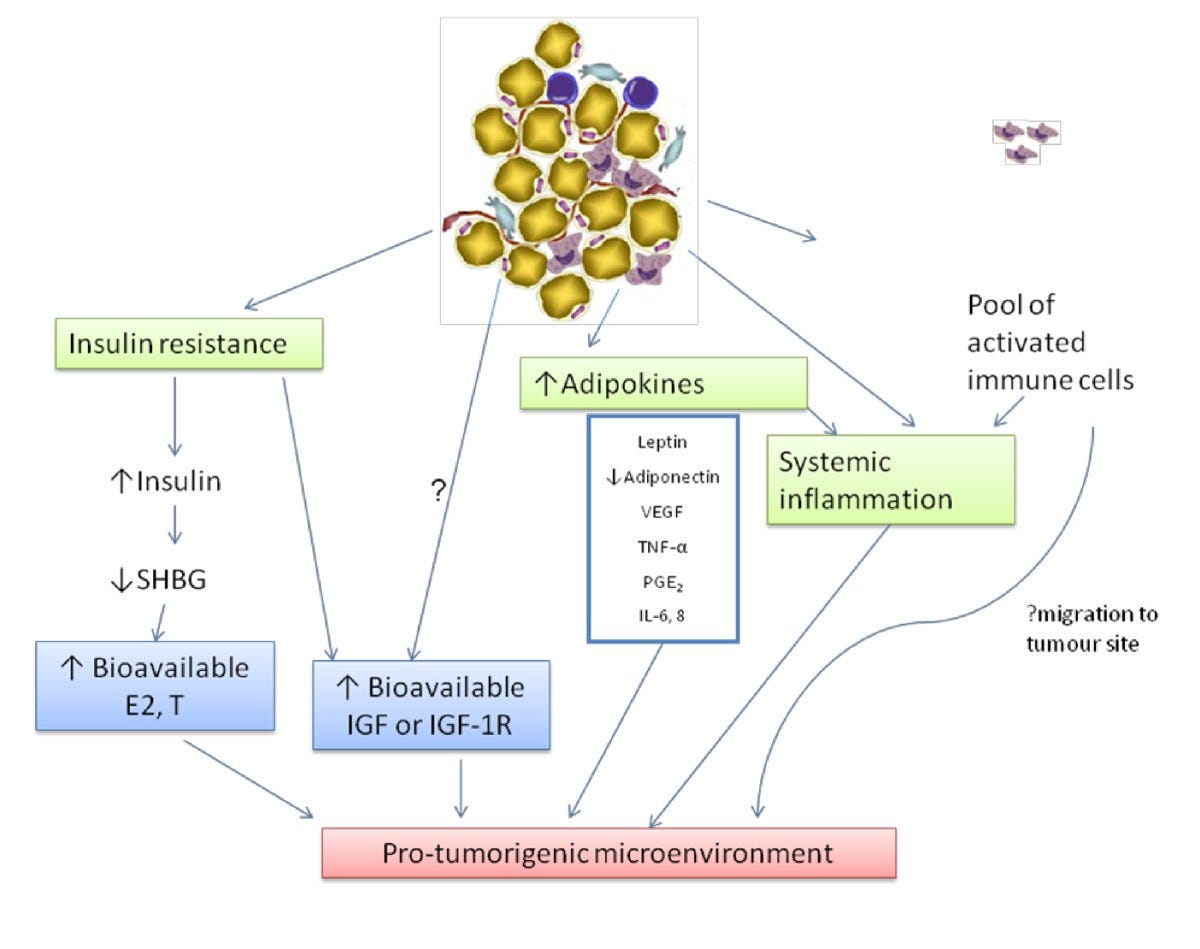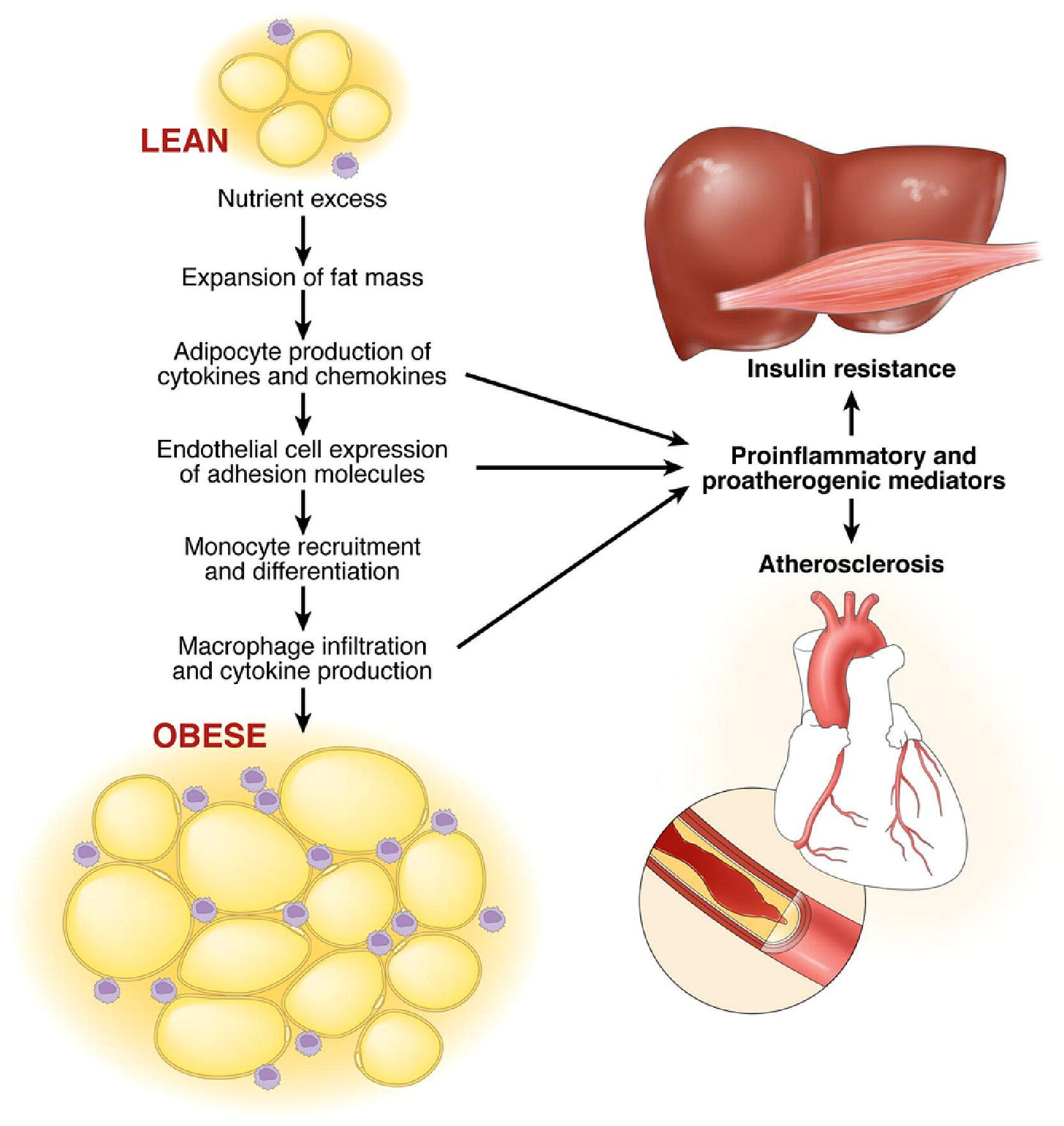How Visceral Fat Harms Our Health And What We Can Do About it
Visceral fat impacts your body at a cellular level, promoting inflammation, hormone imbalances, and oxidative stress—but simple, daily changes can counteract these effects.
In medical school, we learn about the pathophysiology of how a certain health process works on a molecular level. This is necessary because when a new medication or treatment comes along, we can choose whether it’s legit or just hype.
In this article, I’ll briefly review the nerdy side of how visceral fat (fat around the organs) leads to all the bad things you already know. I’ll also offer actionable steps to help prevent it.
What is Visceral Fat?
Visceral fat is a type of body fat that surrounds your internal organs, including the liver, pancreas, and intestines. Unlike subcutaneous fat, which sits just under the skin and you can pinch, visceral fat is hidden deep inside your abdomen. It behaves differently than subcutaneous fat and can have harmful effects if it exceeds a certain amount.
The best way to assess your body’s visceral fat is by using the mirror test, but if you can’t be honest with yourself, objective tests like a DEXA scan may be better.
1. How Chronic Inflammation Promotes Insulin Resistance - Cytokines
Pathophysiology:
Visceral fat promotes insulin resistance through chronic inflammation and metabolic disruption. It releases pro-inflammatory cytokines like IL-6 and TNF-α, which interfere with insulin signaling pathways by blocking insulin’s function. Additionally, visceral fat releases free fatty acids into the bloodstream, leading to lipotoxicity in muscle and liver cells, further impairing glucose metabolism. This process is compounded by oxidative stress and mitochondrial dysfunction, which damage cellular energy production and worsen insulin resistance. The result is elevated blood sugar and insulin levels, which leads to diabetes and cancer due to insulin’s role in promoting cell growth and division.

Actionable Step:
Focus on fiber-rich meals like vegetables, lentils, and whole grains, which slow glucose absorption, reduce inflammation, and improve insulin sensitivity.
2. Hormone Imbalance and Cancer Risk - Adipokines
Pathophysiology:
Visceral fat disrupts hormone regulation by altering the production of adipokines, signaling proteins that influence metabolism and cell growth. It increases leptin levels, a hormone that promotes cell proliferation, angiogenesis (new blood vessel formation), and inflammation, creating an environment favorable for tumor growth. At the same time, visceral fat reduces adiponectin, a hormone with anti-inflammatory and anti-proliferative properties that help protect against cancer. Low adiponectin levels increase inflammation and impair the body’s ability to regulate glucose and fatty acids, further contributing to insulin resistance and oxidative stress. This imbalance fuels processes that support cancer development and progression.

Actionable Step:
Balance blood sugar by incorporating protein-rich meals paired with fiber to stabilize insulin levels and support hormonal balance, with the primary goal of slowly decreasing the body’s visceral fat and improving body composition.
3. Insulin Resistance and Hyperinsulinemia
Pathophysiology:
Visceral fat contributes to insulin resistance, causing cells to become less responsive to insulin. The body produces higher insulin levels (elevated fasting insulin levels) and increased insulin-like growth factor-1 (IGF-1) to compensate. Both insulin and IGF-1 act as growth promoters, stimulating cell proliferation and inhibiting apoptosis (programmed cell death). This creates an environment where damaged or abnormal cells can survive, multiply, and form tumors. Additionally, high insulin levels encourage the production of sex hormones like estrogen, which can further drive hormone-sensitive cancers such as breast and endometrial cancer in women and lower testosterone in men.

Actionable Step:
Incorporate strength training (e.g., squats, lunges, or resistance bands) 2–3 times per week to improve insulin sensitivity, reduce visceral fat, and lower cancer risk.
4. Oxidative Stress Speeds Up Aging and Weakens Your Cells
Pathophysiology:
Visceral fat increases oxidative stress by releasing free fatty acids and triggering lipid peroxidation, which produces reactive oxygen species—unstable molecules that damage cells. These ROS harm proteins, fats, and DNA, accelerating cell aging, weakening tissues, and impairing the body’s ability to repair damage. Over time, this can lead to reduced energy levels, weaker immunity, and chronic inflammation, which are linked to conditions like heart disease, diabetes, and cognitive decline.
Additionally, oxidative stress interferes with the body’s ability to produce and maintain collagen, leading to wrinkles, joint stiffness, and loss of skin elasticity—all signs of accelerated aging. Weakening cells and tissues also impact muscle recovery and organ function, making it harder to bounce back from illness or injury as we age.

Actionable Step:
Prioritize a colorful, plant-forward diet rich in vegetables, fruits, nuts, seeds, and whole grains to supply a variety of antioxidants, vitamins, and minerals that help combat oxidative stress and support cell repair. Pair this with regular physical activity, which enhances circulation and boosts the body’s natural antioxidant defenses.
5. How Growth Factors from Visceral Fat Disrupt Cell Balance and Accelerate Aging
Pathophysiology:
Visceral fat produces Fibroblast Growth Factor-2 (FGF2) and other signaling molecules that promote cell proliferation and tissue remodeling. While these processes are necessary for healing and repair, excessive activation caused by chronic inflammation and insulin resistance can lead to imbalanced cell growth and reduced cellular stability. Over time, this imbalance contributes to tissue dysfunction, accelerated aging, and the breakdown of organ health.
FGF2 stimulates the formation of new blood vessels to support unwanted cell growth. When unchecked, this process can lead to stiffened blood vessels, poor circulation, and increased oxidative stress, further straining the body’s repair systems and promoting inflammation-driven aging.
Actionable Step:
Prioritize restorative sleep (7–9 hours nightly) to regulate growth hormone levels and promote cellular repair. Combine this with stress-reducing practices like meditation or stretching to naturally lower inflammation and balance growth factor activity.
The Bottom Line
Visceral fat impacts your body at a cellular level, promoting inflammation, hormone imbalances, and oxidative stress—but simple, daily changes can counteract these effects. Start with one actionable step today and watch your health transform!




